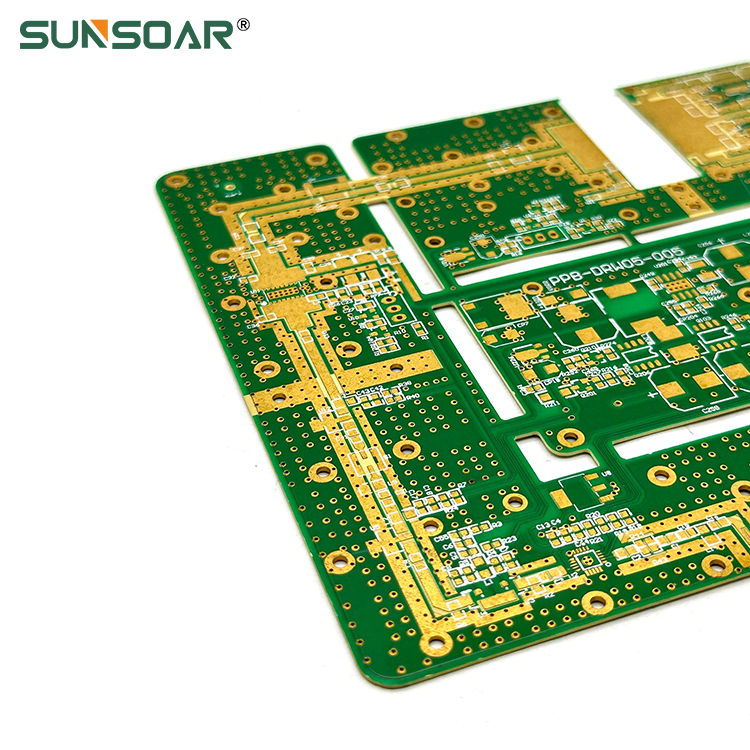Why Do PCBA Manufacturers Need to Adhere to International Standards?
- Sunsoar engineer Mia
- Dec 22, 2024
- 3 min read
In the global electronics market, adhering to international standards is more than a regulatory requirement—it's a hallmark of quality, reliability, and competitiveness. For PCBA (Printed Circuit Board Assembly) manufacturers, these standards define best practices for production, ensure compatibility, and guarantee safety. In this blog, we’ll explore the importance of adhering to international standards and how they benefit both manufacturers and customers.
1. Ensuring Product Quality and Reliability
International standards like IPC-A-610 or ISO 9001 establish guidelines for quality assurance in PCBA manufacturing. By following these standards, manufacturers can:
Minimize Defects: Consistent processes reduce soldering errors, misaligned components, and other production issues.
Enhance Durability: Standard-compliant PCBs perform reliably under various conditions, improving product lifespan.
Meet Performance Benchmarks: Standards define critical metrics, ensuring the PCBA functions as intended.
Adhering to these guidelines builds trust with clients and reduces the risk of product recalls.
2. Facilitating Global Market Access
Compliance with internationally recognized standards simplifies market entry for products worldwide. Key benefits include:
Ease of Exportation: Products that meet standards like RoHS, CE, or UL are more readily accepted in foreign markets.
Client Confidence: Many clients, especially in automotive, aerospace, or medical sectors, require certified products for procurement.
Legal Compliance: Adhering to safety and environmental standards helps avoid fines or legal disputes in target markets.
Standards act as a universal language, streamlining cross-border collaboration and trade.
3. Promoting Environmental Sustainability
Standards like RoHS (Restriction of Hazardous Substances) and REACH (Registration, Evaluation, Authorization, and Restriction of Chemicals) focus on reducing environmental impact. By adhering to these:
Eco-Friendly Manufacturing: Toxic substances like lead, mercury, and cadmium are eliminated or minimized.
Waste Reduction: Guidelines encourage efficient use of materials and proper recycling of electronic waste.
Consumer Safety: Ensuring products are free from harmful chemicals protects end-users and the environment.
Sustainable practices not only fulfill ethical responsibilities but also appeal to eco-conscious consumers.
4. Improving Manufacturing Efficiency
International standards define best practices for processes, helping manufacturers streamline production. Advantages include:
Process Standardization: Consistent workflows reduce variability, ensuring predictable outcomes.
Reduced Waste: Guidelines optimize resource use, minimizing material wastage.
Enhanced Traceability: Standards like ISO 13485 require robust documentation, simplifying troubleshooting and process audits.
Efficiency gained through adherence leads to cost savings and improved product quality.
5. Mitigating Risks and Liability
Non-compliance with international standards can expose manufacturers to serious risks, including:
Product Failures: Poor-quality PCBs can cause device malfunctions, leading to costly recalls.
Reputational Damage: Failing to meet standards erodes trust with clients and consumers.
Legal Consequences: Regulatory violations may result in fines, litigation, or bans from key markets.
Compliance safeguards against these risks, ensuring long-term operational stability.
6. Driving Innovation and Competitiveness
Staying compliant with evolving standards encourages manufacturers to adopt the latest technologies and techniques. Benefits include:
Keeping Pace with Industry Trends: Standards often reflect advancements in materials, processes, and design principles.
Differentiating Products: Meeting or exceeding standard requirements highlights a manufacturer’s commitment to quality.
Attracting High-Value Clients: Many clients prefer working with certified manufacturers to mitigate supply chain risks.
Adhering to standards positions manufacturers as leaders in a competitive industry.
Key International Standards for PCBA Manufacturers
Some of the most important standards for PCBA manufacturing include:
IPC-A-610: Guidelines for soldering quality and assembly acceptance.
ISO 9001: Quality management system for consistent production and customer satisfaction.
RoHS and REACH: Environmental standards limiting hazardous substances.
UL Certification: Safety standards ensuring PCBs meet fire and electrical safety requirements.
ISO 13485: Quality management for medical devices, emphasizing traceability and risk management.
Adopting these standards helps manufacturers build a strong reputation in the global market.
Conclusion
Adhering to international standards is essential for PCBA manufacturers to ensure quality, gain global market access, and reduce environmental impact. Compliance not only safeguards against risks but also drives innovation and competitiveness, creating a win-win scenario for manufacturers and customers alike.
At SUNSOAR, we are committed to meeting and exceeding international standards in every project we undertake. Our certified processes and quality-driven approach ensure that every PCBA we produce adheres to the highest benchmarks of performance and reliability.
Contact us today at sales05@sunsoartech.com or call +86 13632793113 to learn how our certified manufacturing services can support your business.



Comments